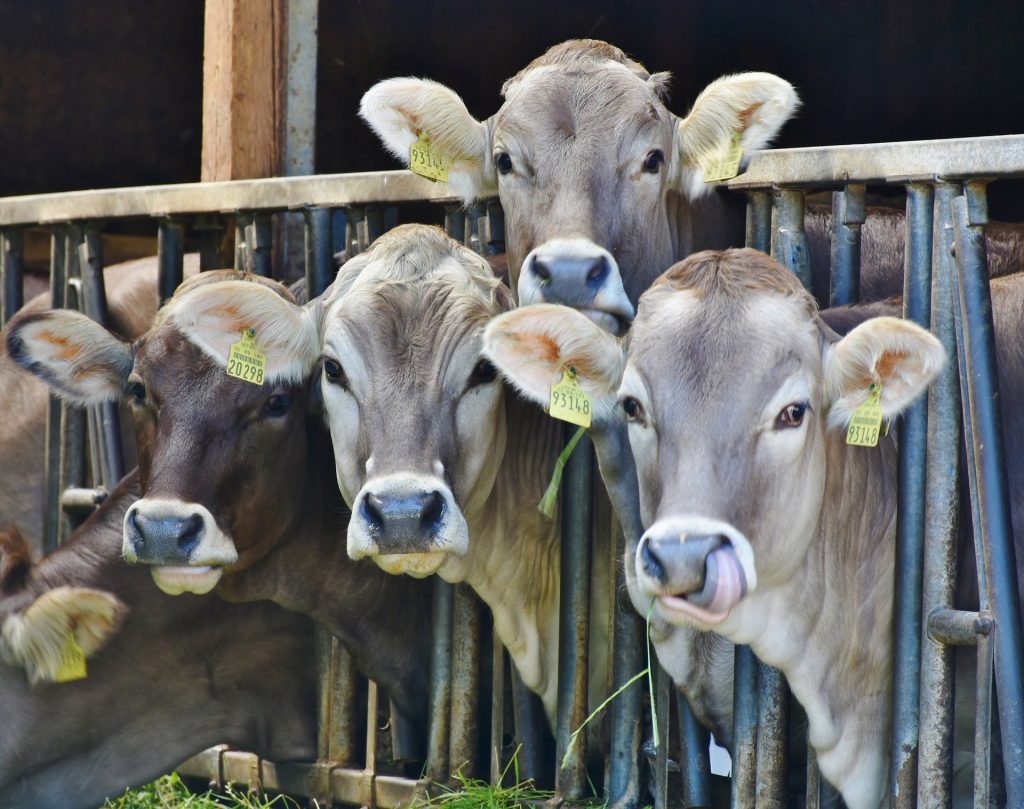
While a strain of highly pathogenic avian influenza virus has been detected in dairy cattle in nine states—not including New York state—the commercial milk supply continues to be safe, according to a panel of Cornell, New York state and dairy industry experts.
Pasteurization of milk and cooking meat to proper internal temperatures inactivates the strain of avian influenza, called H5N1, according to experts in the College of Agriculture and Life Sciences (CALS), the College of Veterinary Medicine (CVM), the New York State Department of Agriculture and Markets (NYSDAM) and the National Milk Producers Association, who provided the latest science-backed information for dairy farmers during a May 2 webinar.
“With the current strain of the virus, there is no human-to-human transmission,” said Elisha Frye, assistant professor of practice in the Department of Population Medicine and Diagnostic Sciences (CVM) and diagnostic veterinarian at CVM’s Animal Health Diagnostic Center. “So that’s the good thing.”
There have been two reported human cases of H5N1 in the U.S. since 2022. The first was a Colorado prisoner who was depopulating poultry in 2022 and his only clinical sign was fatigue. The other was a dairy farm employee who developed pink eye, or conjunctivitis, in April. Both of them recovered. Internationally, 13 human cases of H5N1 (clade 2.3.4.4b) have been documented through the Centers for Disease Control and Prevention, with one death, Frye said.
Infections in dairy cows, which initially may have contracted the virus from wild birds, have been confirmed in Colorado, Idaho, Kansas, Michigan, New Mexico, North Carolina, Ohio, South Dakota and Texas, across 36 herds, said Joy Bennett, director of the Division of Animal Industry at NYSDAM.
The strain has been detected in many New York counties in backyard bird flocks, upland game birds and live poultry markets since February 2022, Bennett said.
With regard to commercial dairy, the Food and Drug Administration recently collected nearly 300 samples of fluid milk, cottage cheese and sour cream from across 38 states and tested them for H5N1, said Samuel Alcaine, associate professor of food science in CALS.
“Roughly … one in five of these samples tested positive for fragments of the virus,” Alcaine said. Further tests showed that the virus detected in all the samples was inactivated, thanks to pasteurization.
Now, the U.S. Department of Agriculture is sampling ground beef from states that currently have herds that tested positive; so far the first 30 samples have all come back negative, Alcaine said.
It is unknown how well the virus survives in raw milk, which is a small share of the dairy market, or what viral doses in milk would be needed to infect people, he said.
“There are still a lot of questions for raw milk cheesemakers on what to do if their cows test positive for avian influenza,” Alcaine said. “They definitely should not be making any product from contaminated milk or potentially contaminated milk.”
He added that raw milk producers in states with positive herds should consider testing their bulk milk.
You can now read the most important #news on #eDairyNews #Whatsapp channels!!!
🇺🇸 eDairy News INGLÊS: https://whatsapp.com/channel/0029VaKsjzGDTkJyIN6hcP1K























